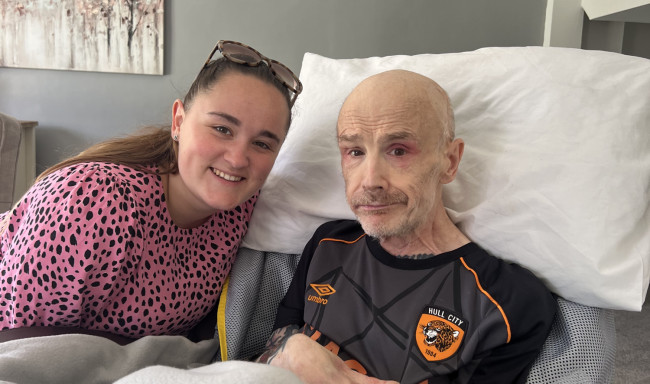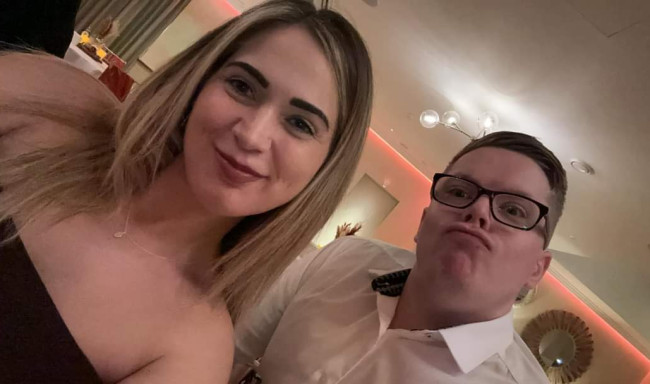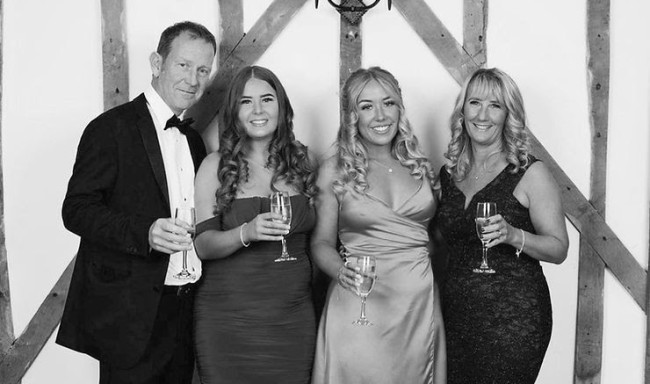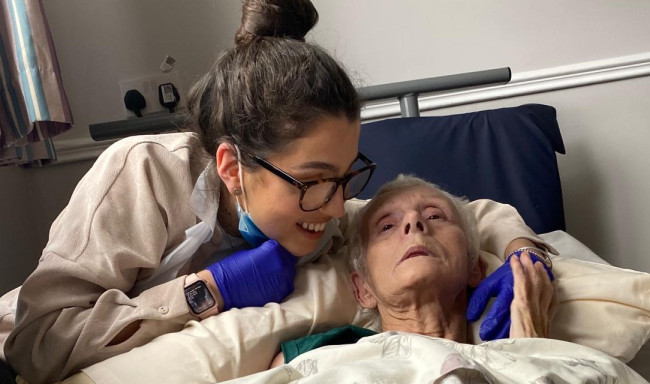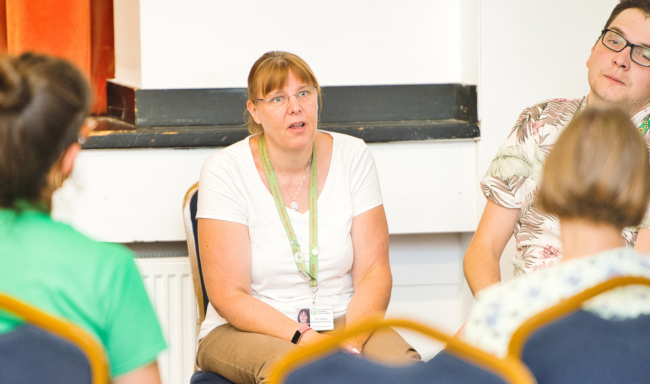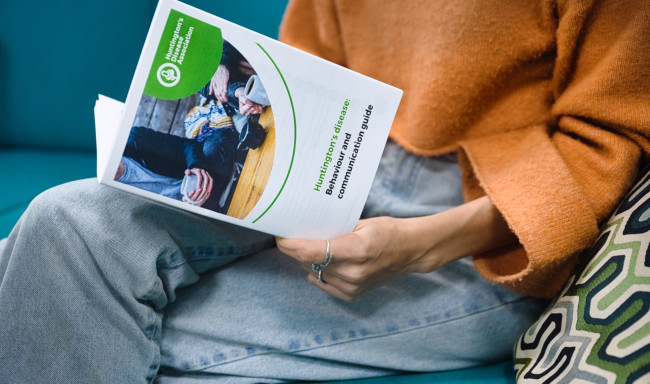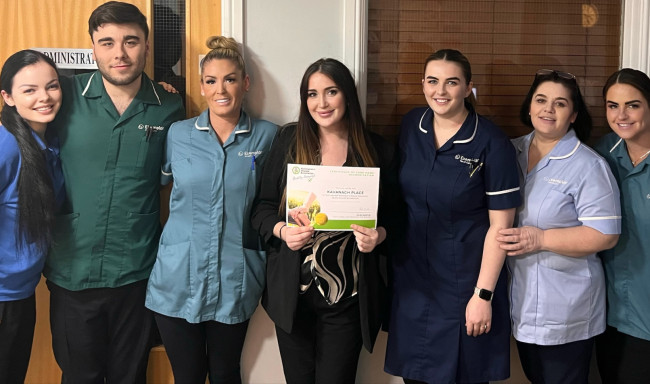"I can hand-on-heart assure you that getting the youth engagement team involved will help relieve any of your worries about approaching children about Huntington's."
We spoke to Hannah, mum to wonderful Harry and Bella Rose and wife to Stu about how her family has navigated Huntington's disease utilising our youth engagement service - HDYES.
Tell us a little about you and your background
Stuart and I have been together for almost 12 years. When Stu and I met, he’d just recently lost his dad so our friendship was very much built on supporting him through his recent loss and enjoying life, partying was very much our style. I then fell pregnant even though I had been previously told I wasn’t able to naturally conceive but we were happy to welcome a new addition to our family. Soon after Harry was born, I was pregnant with Bella.
Stuart and I both thoroughly enjoyed our family life, we made a house a home together. Having two young children, we were both so tired naturally but this was when we started to notice the small changes happening in Stu. I think we knew that it wasn’t just the tiredness that having young children brings, but still, Stu worked hard in his job as a scaffolder. It was at work that his new-found clumsiness became apparent. In December 2016 he chose to have the blood test done soon after some accidents at work, I supported him through the testing process, diagnosis and still do now almost seven years later.
I’ve now become his full-time carer, and our children Harry, ten and Bella-Rose, eight have taken on their role as young carers excellently. I’m thankful that my years of working within nursing ensured that I fully support and care for Stu in every way possible.
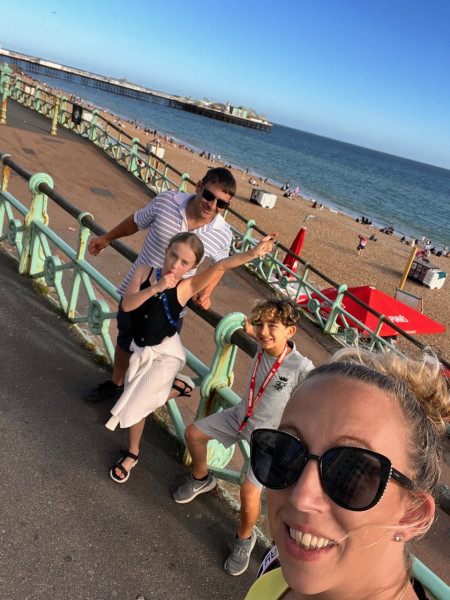
When did you first find out about Huntington’s disease?
Personally I first found out about Huntington's disease when I worked on a psychiatric ward over 16 years ago. It wasn’t until I met Stu that I knew the actual reality of the condition. How it was genetic, how it changed a person so drastically, and how slowly it stripped the person of their own body and mind.
My biggest heartbreak is seeing Stu change from the amazing hard-working man to needing help in all areas of his life. I’ve learned so much during these past seven years from the Huntington's Disease Association and my local support group. It’s helped me understand how I can provide the best care for Stu.
How did you feel about having to speak to your children about this?
The children unfortunately have never known anything different. For most of their life their dad has had Huntington’s. When symptoms had developed, it wasn’t something I could just hide away from them, so from the start I have always been open and honest whenever questions were asked.
The genetic part was my hardest area to admit, I just didn’t have the heart to tell them. My heart hurts deeply that they could carry their dad’s genetic gene. I struggled daily with the reality, and find it very hard to talk about. I knew the effect it would have on them, and that’s when the choice to involve other support services was introduced. I knew this way I could have open and honest discussions with both Harry and Bella whilst they were supported with age-appropriate information regarding Huntingtons.
What were your first steps in approaching this?
I searched on the Huntingtons Disease Association website, I was able to see they had a youth engagement service and approached them about how we could gain support. Unfortunately at that time, both Harry and Bella-Rose were too young to access the help, due to their age. But as soon as Harry turned eight, the youth engagement service - HDYES was there to help. James sent information suitable for children with a booklet to work through, Harry was able to access the internet where he had meetings with James regularly online. All of which had such a positive impact on Harry’s wellbeing. He was provided with a toolkit of coping strategies and age-appropriate tasks.
In what way did the Huntington’s disease youth engagement service help you in speaking to your children and their school?
James took time and was able to discuss the questions Harry had, he did so in such a gentle manner Harry never came off a call distressed or upset, he was left empowered and supported in his little world which now included the fact he too had a 50/50 chance of inheriting his dad’s condition. Due to covid, James and Harry never met face to face but most of these sessions happened whilst at school. The school really helped support these meetings and fully supported him during and after each session. James even provided an online training session to all teaching staff within the school. Helping the people who support and care for Harry to understand the true reflection of what life is like living with Huntington's in the family. I was so thankful for this support, as I too work as a learning support assistant at the same school, it helped others understand how hard life is with Huntington's, and why I or the children may be struggling at times.
The online meetings stopped last year when Jack joined the youth engagement team and Bella turned eight. Fortunately, Jack is very local to our family home. With the help of the school's amazing learning mentor, Jack now visits the school at planned times for face-to-face meetings with both Harry and Bella. He provides a safe, open and honest space where they complete small tasks to talk about their dad's condition and any worries they may have. Recently they had drawn a full body picture and detailed each part of the body with the changes and symptoms related to Huntingtons. This really helped them to engage and talk about the difference and how we can look after their dad a little better. These meetings are invaluable to both Harry and Bella. I believe it empowers them to understand Huntington's, and allows them to reflect on how they live a very different life than that of their friends, but they can still live fulfilling lives even with Huntington’s being part of it.
Can you tell us a little bit more about your relationship with our youth engagement service and how this service has helped your children?
James was always amazing, from the first interaction he was so reassuring and kind. He’d often text or call me and plan to have online chats with Harry. He listened to me and took into account my concerns about being honest regarding the 50/50 chance. He was empathetic and fully supported me. He assured me he would discuss only when the children asked, and would do so gently. He didn’t let me down, Harry and Bella now understand the risk they have of carrying the gene, he informed them if they ever needed to talk he was always available if they ever had questions. I now have no worries like I’d had before as I know they are fully supported by the youth engagement team and also everyone else around them including school staff and family. James got Harry and Bella involved in online meetings to have discussion groups with other young carers so they never felt alone. He really was the reassuring person they knew they could turn to.
Since Jack's arrival to the team he has been able to meet the children face to face, the help he provides is just astounding. I don’t believe I or the children would cope without his time and efforts. He goes above and beyond to fully support Harry and Bella, he creates a fun, safe place to talk whether one-to-one or both together. They both look forward to seeing him as it allows time for open discussions away from Stu and myself. They are reassured and fully supported that no question is too silly and that having worries can be safely talked about whilst being equipped with coping strategies when at home. Both Harry and Bella utilise a worry bag which was provided by another great organisation called “Campaign for my Brain”. They both know they have safe spaces where they can think and talk about Huntington's with the youth engagement team, but also their school learning mentor or myself and family.
What advice would you give to anyone who needed to speak to their children or their school about Huntington’s?
Everybody is different, I’d hate to dictate what you must do. But I can hand-on-heart assure you, that getting the youth engagement team involved will help relieve any of your worries about approaching children about Huntington's. The way in which the youth engagement team liaise with the children’s school is second to none. They do so professionally and support the school that requires any additional support. They take time to care and it truly reflects in all their work.
Children need a nurturing environment to enrich their lives and the youth engagement team helps equip you, so you can do so in a safe and open manner. Being open and honest has always been my option when talking to my children. I know this from personal experience, unfortunately my husband's family had no idea of the disease until it was too late, the effects were devastating. I have made the choice to always give both my children an open and honest space where they can ask questions and if I don’t have the answers, I know the youth engagement team will support me in getting the correct response to them.
I am of course lucky that I’m always home when both the children finish school, so am always able to give them time to talk, but let your child know you are always there for them, and if you can’t be then that’s when the youth engagement team will always be willing to listen and completely understand any thoughts, questions or worries you’re child may have. We feel incredibly lucky to have such a brilliant service available to our family, I’d always recommend anyone going through the crazy life that is Huntington's to take active steps to involve the youth engagement team as they will always be there to help.
Thank you so much to Hannah for sharing her story with us.
It can be very difficult and upsetting as a young person in a Huntington’s family. What you are going through is not something that many people your age have to deal with. Here you can find more information on support including a link to our Youth Engagement Service. We also have a handy teacher's guide which is a great resource to share with schools to help them better understand what Huntington’s disease is and what you will be going through.
If you have a story to share, please get in touch with us via email.

